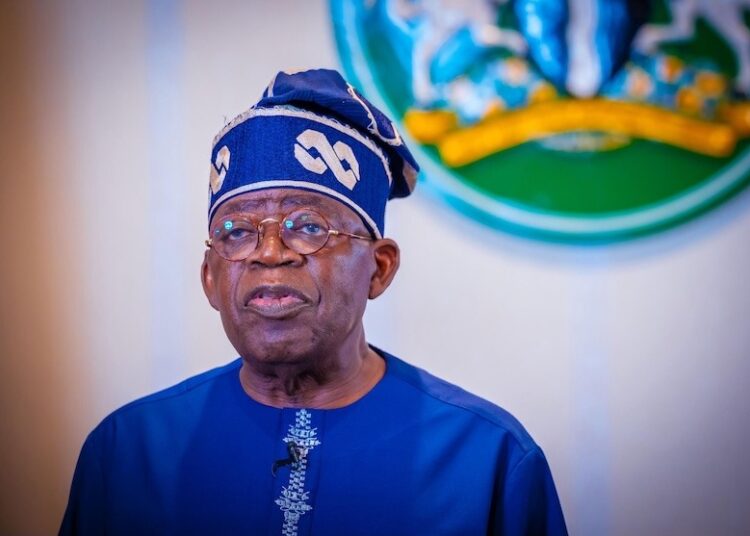The Nigerian stock market has experienced remarkable growth under President Bola Tinubu’s administration, with the market capitalisation increasing by N60.193 trillion in 27 months.
The All-Share Index (ASI) has also surged, gaining 155.72 per cent since President Tinubu assumed office.
This growth is attributed to the administration’s pro-market policies, including foreign exchange liberalisation, fiscal reforms, and renewed investor engagement. The market’s performance is seen as a reflection of broader economic reforms aimed at revitalising Nigeria’s financial ecosystem.
Analysts said the stock market’s reaction under Tinubu reflects strong investor confidence in his market-driven policy signals, including fuel subsidy removal, foreign exchange unification, and a renewed push for private sector-led growth.
The overall market performance measure, the All-Share Index (ASI), which tracks the general market movement of all listed equities on the Exchange, rose by 155.72 per cent to close at 142,710.48 points on September 30, 2025, from 55,710.48 points on June 1, 2023. Also, the market capitalisation gained N60.193 trillion to close on September 30, 2025, at N90.581 trillion from N30.388 trillion at which it opened for trading activities on June 1, 2023.
Speaking on market performance, the managing director of HighCap Securities Limited, Mr. David Adonri, highlighted “the impressive performance of the equities market, reporting an overall appreciation of over 155 per cent in over two years.
“This indicates a robust trading environment, underscored by increased volume and value of trades, alongside a notable influx of foreign investors engaging with the market over the past year.”
He stated that “the past year has been marked by active participation in the capital market, particularly with new listings from Banks contributing to overall market dynamism.”
He added that “subsequent macroeconomic reforms initiated a recovery that has led to what is popularly known today as the ‘Tinubu Boom’, marking a renewed phase of market vitality since President Bola Tinubu took office in 2023. While the intensity of this boom has moderated compared to its earlier stages, the market remains stable and continues to perform effectively.”
The managing director of Globalview Capital Limited, Mr. Aruna Kebira stated that stated that Tinubu coming to power first decision was to remove fuel subsidy, which reflects a decisive move that was essential to avoid potential challenges from vested interests.
Kebiru acknowledged the complexities that arise from such changes, particularly as prices adjusted significantly in the market.
He emphasised the importance of understanding economic equilibrium, noting that while prices initially spiked, they eventually stabilised.
Kebiru expressed confidence in the government’s ability to implement effective policies, drawing parallels to the successful reforms, the liberalisation of the forex market, which would allow businesses to access foreign currency through banks rather than relying on middlemen.
This, he said, would foster a healthier business environment for manufacturers who have faced challenges due to high import costs.
Regarding interest rates, he pointed out that the central bank’s strategy of raising the Monetary Policy Rate (MPR) in response to inflation had merits. Recently, however, the MPR has declined, indicating a shift toward a more favourable economic climate.
He also commended the central bank’s efforts to recapitalise banks, allowing them to engage more effectively in international trade, saying that “the ongoing efforts in capitalisation across various sectors, including banking and insurance, demonstrate the government’s commitment to enhancing economic growth.
As for government borrowing, he highlighted the trend of reduced interest rates in the money market, which is encouraging investors to seek better yields in the capital market, explaining that “in an environment of high interest rates and inflation, the capital market remains a viable option for investors looking for inflation-linked returns. With inflation around 25 per cent while the money market offers lower returns, investments in the capital market can provide substantial gains.”
Kebiru expressed belief that the government’s reforms, while focusing on sound financial practices, aim to make the capital market more attractive and accessible, thereby fostering a healthier investment landscape in Nigeria.






